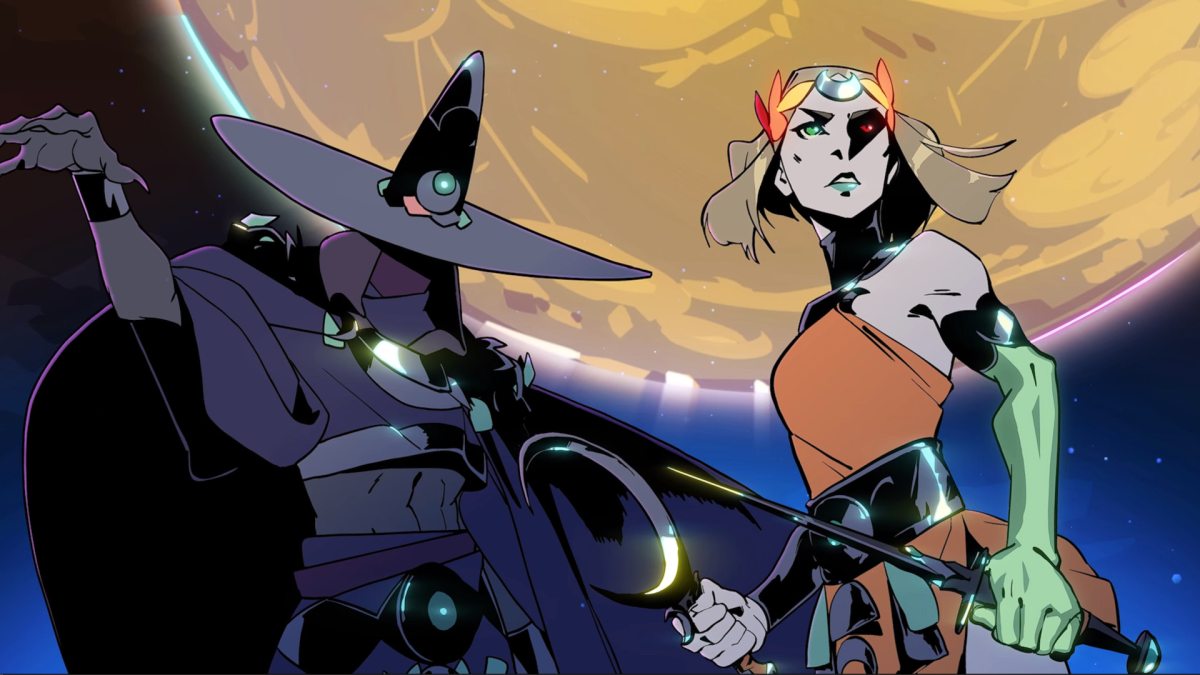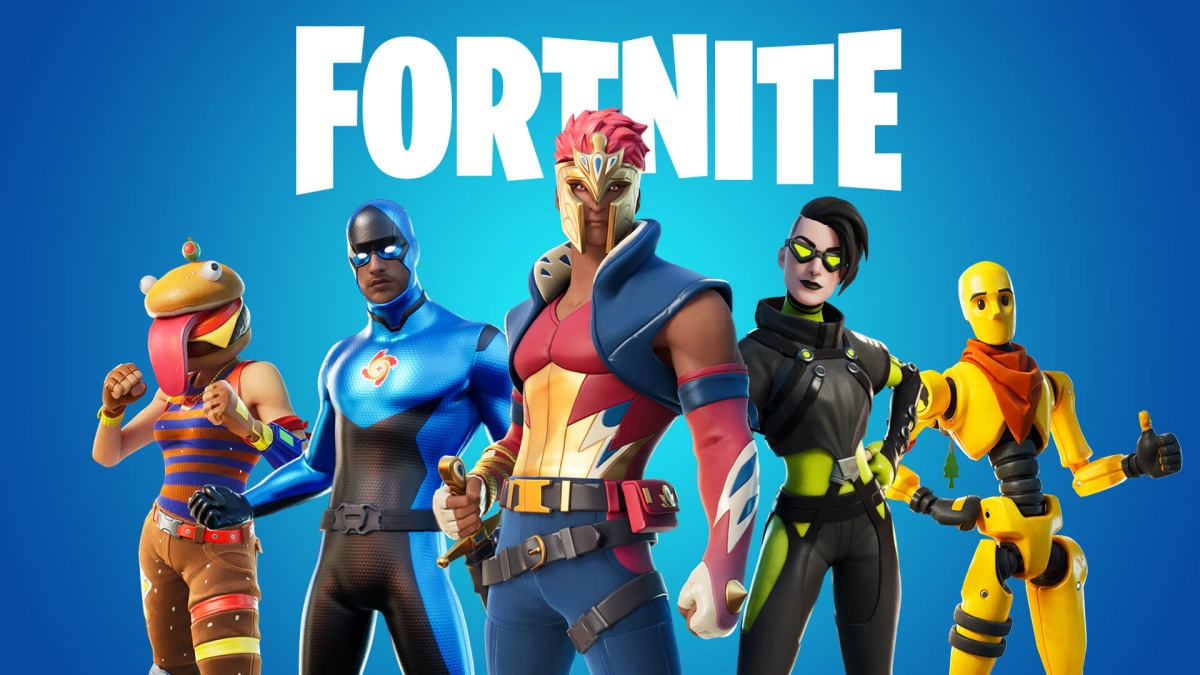Yesterday, I crashed into bed after a lovely night out with friends, went to Twitter, and saw an announcement that blew me away: We’re getting Hades II, baby! Supergiant Games’ immensely popular Greek mythology roguelite returns with a new cast of characters. This time, Princess of the Underworld and godly witch Melinoë takes the lead over her brother Zagreus, as she ventures on a quest to stop the Titan Chronos from overthrowing Olympus.
On the way, Melinoë receives aid from the witch goddess Hecate, meets with the god of the sun Apollo, and crosses paths with Nemesis, who rules the domain of divine retribution. And my sweet little pagan heart is squealing at all this and more. Hades always was, and always will be, a series with plenty of love for its pagan followers. And with Hades II leaning into witchcraft and magic, I expect no less to adore from Supergiant’s sequel.
I’m a Hellenic pagan, or a pagan who primarily worships the Ancient Greek pantheon. While I’ve prayed to the whole pantheon in some shape or form, I mostly worship Artemis and Aphrodite. And I’ve always loved how Hades depicts both goddesses, Artemis especially.
Artemis is often read as a lesbian and/or ace goddess by pagans today, and Hades totally nailed the lesbian interpretation of her by showing the difficulty Artemis has integrating with the rest of the Olympians. In Hades, Artemis avoids her time with her ouranic family, instead frolicking with her gaggle of nymph babes out in the forests. She balks at the idea of her father finding her a husband, certainly contributing to her anger with Olympus—Artemis famously asked Zeus to let her keep her maidenhood, according to a hymn by Callimachus, so the idea of a husband coming up must certainly give Artemis a headache.
But it’s Artemis and Callisto that really interest me the most. Artemis references her friendship with the nymph Callisto on multiple occasions, often with a tinge of special, intimate endearment. No surprise, Artemis and Callisto’s relationship is a pivotal one in mythological lore, often ending in tragedy when a male god predatorily lusts after Callisto. Scholar Sandra Boehringer implies in her book Female Homosexuality in Ancient Greece and Rome that Artemis and Callisto were homoerotically involved, in some renditions of the myth.
Things get even more complicated when Aphrodite is thrown into the mix. When the two goddesses cross paths in the game, Aphrodite flirts with Artemis, suggesting her body may be too distracting to Artemis to keep her words straight. The whole scene hints at all those larger themes of homoeroticism seen through Artemis and Callisto’s relationship, and it also serves as a reference to Aphrodite’s mythological appeal toward women. As Homer writes in The Iliad, Helen of Troy recognizes Aphrodite in the flesh by the “beautiful neck of the goddess, her lovely bosom, and sparkling eyes.” Hades definitely took advantage of this idea and went the extra mile, giving Aphrodite that certain high femme chic that makes her a pansexual baddie who might just give Artemis gay panic.
For me, it’s not just that Artemis, in Hades, is relatable. It’s that Hades thinks carefully about Artemis as a goddess. The game begs the question, “Well, if there were a closeted lesbian goddess in a mythologically patriarchal pantheon, what would life be like for her?” Pretty hard, it turns out. Hades does a good job of depicting Artemis as a goddess struggling with herself and her family as she figures things out, and it does so by using mythological text as a launchpad for contemporary problems like compulsory heterosexuality. This, to me, feels real to my religious understanding of Artemis—not that I think Artemis, the goddess I worship, actually struggles with lesbianism. Rather, she is not a simple deity, not just “a hunting goddess” or “a lesbian goddess” (or, more specific to my understanding of her, “an aroace lesbian goddess”). The more you think about Artemis religiously, the more you realize her relationship to sexuality and gender is a kaleidoscope of ideas. That’s true in Hades, too. The character and the goddess alike are deep, deep wells.
There are other ways Hades weaves a rich tapestry through nuanced references to Greek mythology. Every god’s design is filled with nods to ancient art, mythology, and their core domain of influence. Hades’ rendition of Zagreus has rather unique parallels to the ancient Orphic beliefs around Zagreus, too—that Zagreus was torn apart by Titans and reborn as Dionysos. Zag constantly gets reborn from a pool of blood throughout the game, which is a pretty neat reference to the idea.
But it’s not the aesthetics that make Hades so cool to a pagan like me. It’s the way Supergiant digs into mythology, psychologically analyzes the gods, places them in conflict with each other, and lets the player watch how they would engage. The gods feel simultaneously ancient and modern. They clearly have a very different worldview than us, yet the way they respond to problems feels layered, just like the real ones I worship. I can’t say I pray to Hades’ exact rendition of Artemis, but I pray to a goddess who has a lot of similarities to her. And it’s Hades‘ plausibility that makes me love the game so much.

So yes, bring on Hecate. Bring on Apollo. Bring on Melinoë, a lesser-known nymph who will almost certainly become another bisexual chthonic baddie, just like Zag. But most importantly, bring on Supergiant’s interpretation of this wonderful and complex mythology. To a pagan like me, Supergiant has figured out how to make its gods feel alive. And even if you don’t worship the Greek gods like I do, I hope you’ll see a bit of yourself, and your own relationship with the world, reflected in this lovely game’s lore.
(featured image: Supergiant Games)









Published: Dec 9, 2022 05:16 pm